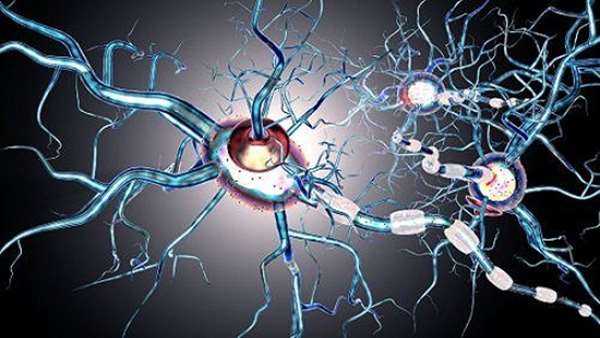MS: When good brain cells turn bad
The researchers behind this discovery are from the Karolinska Institutet in Stockholm, Sweden, and they hope that their findings might lead to a new class of multiple sclerosis (MS) therapies.
The researchers behind this discovery are from the Karolinska Institutet in Stockholm, Sweden, and they hope that their findings might lead to a new class of multiple sclerosis (MS) therapies.
According to the MS Trust, about 2.5 million people around the world currently live with MS. In MS, the immune system attacks oligodendrocytes, the cells that create myelin.
Myelin is a fatty substance that coats nerve cells in the central nervous system (CNS). It protects and insulates these neurons, allowing the quick and reliable transmission of electrical impulses.
The erosion of the myelin sheath interrupts the transmission of signals along nerves, which causes the symptoms of MS, such as vision problems, muscle weakness, and difficulty with coordination and balance.
In most cases, doctors are unable to identify the cause of MS until some years after the onset of the disease. While the majority of people with MS only exhibit mild symptoms, serious cases of MS can render people unable to write, talk, or walk.
Recently, Medical News Today looked at another study investigating the root causes of MS. The results suggested that bacteria in the gut may trigger the immune response that causes the deterioration of myelin (demyelination).
In September, we examined the findings of another study, which indicated that the transmission of an erroneous signal from the brain to the lymph nodes may instruct immune cells to swarm the brain, leading to demyelination.
Reference:https://www.medicalnewstoday.com/articles/323682.php





ارسال به دوستان